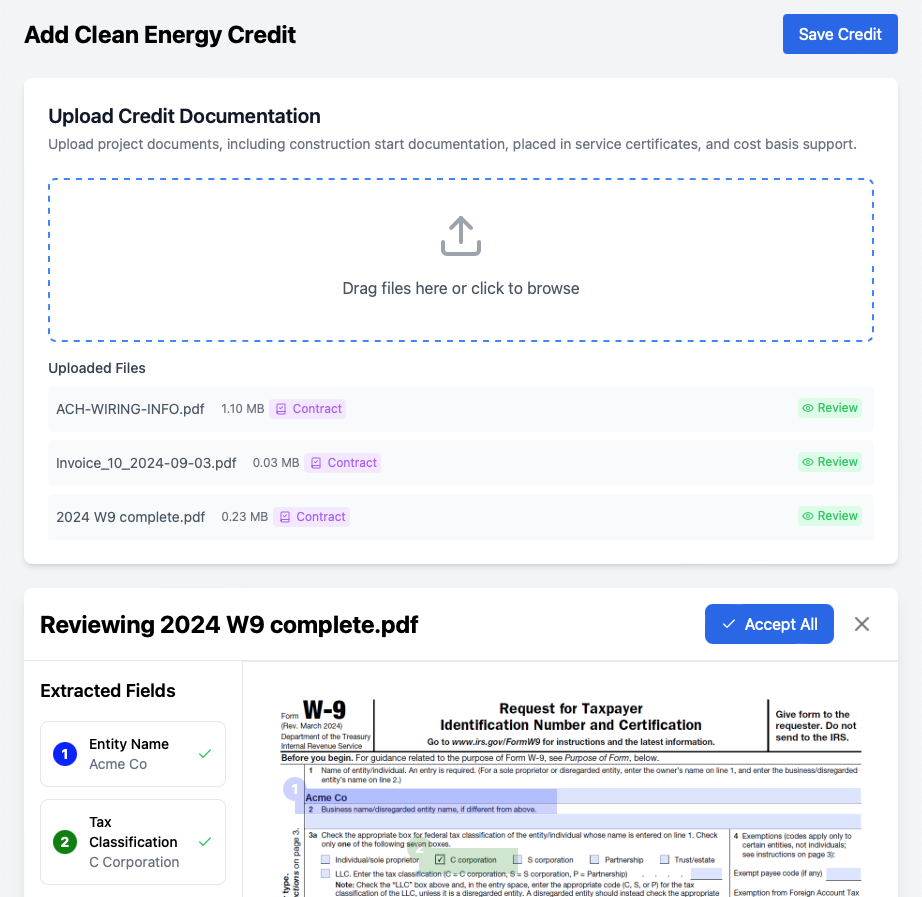Transfer Tax Credits in Minutes, Not Months
Solar Third Party Owners (TPOs) save an average of 200 hours and capture 40% more tax credit value – all in one unified platform.

Solar Third Party Owners (TPOs) save an average of 200 hours and capture 40% more tax credit value – all in one unified platform.

Keep more of your credit value with our transparent, flat 1% fee.
AI-driven automation cuts tax credit transfers by up to 40%, saving 200+ hours per transaction.
Capture up to 40% in tax credits with IRA incentives and domestic content, battery, and storage adders—all for a flat $1,000 registration fee, no matter the project size.
Our automated system ensures 100% compliance with IRS regulations, eliminating rejection risks from day one.

Streamlined Workflow

Interactive Dashboard
Our team combines decades of expertise in tax credits, finance, and technology
Expert in Fintech, Data & AI Platforms | State Farm, Standard Chartered Bank
$30B+ in Structured Bonds & Finance | Citibank, Bank of America, Stanford
Expert in Tax Law, Compliance & Tax Strategies
Risk, Compliance, Blockchain & AI
Most clients save 40% of the time they'd typically spend on ITC compliance. For the average TPO, this translates to over 200 hours saved per transfer process.
We combine AI automation + 40+ years in tax credit expertise to maximize your savings and minimize risk. Our platform is specifically designed for solar TPOs with a focus on residential solar and battery storage projects.
You only pay a small fraction of what you earn:
After your initial strategy call, we can have you onboarded within 48 hours. Our intuitive platform requires minimal training, and our team provides personalized support throughout the process.
Stop leaving money on the table. Automate your entire ITC process today.
Book Your Demo →